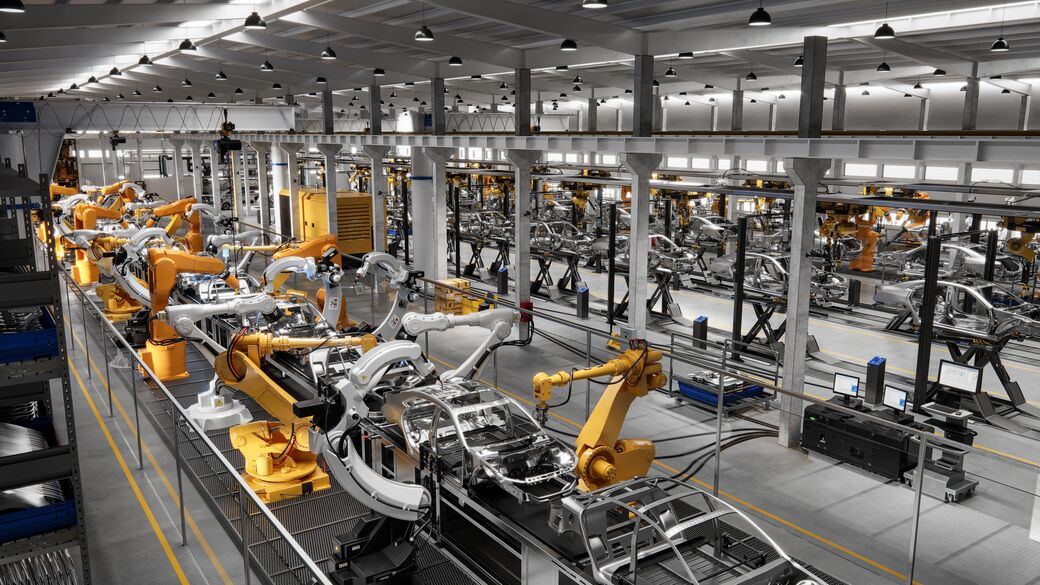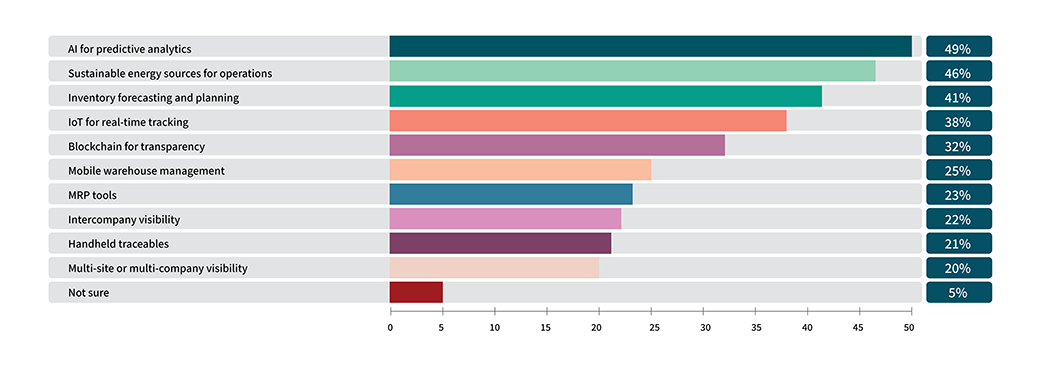
The supply chain uncertainties of the past few years have forced manufacturers to create strategies that allow for more control when disruptions happen, and ESG initiatives are making supply chain sustainability a priority as well. How well are manufacturing leaders doing with their supply chain management and resilience?
Manufacturers are prioritizing three main strategies to improve supply chain resilience: 30% are implementing digital tracking tools for better visibility, 22% are adopting sustainable materials and practices, and 17% are diversifying suppliers. These strategies aim to boost supply chain adaptability and sustainability.
How has your organization adapted its supply chain strategies to improve resilience and sustainability in the past year?

To improve supply chain sustainability and resilience, manufacturers are making significant technology investments. These include AI for predictive analytics (49%), sustainable energy sources (46%), inventory forecasting and planning (41%), IoT for real-time tracking (38%), and blockchain for transparency (32%).
In what ways has your company invested in technology to enhance supply chain sustainability and resilience? (Select all that apply)

Fifty-seven percent of respondents find that the technologies their companies are using to improve supply chain sustainability are very effective. Meanwhile, 41% find them somewhat effective, and only 2% find them ineffective, showing a high level of confidence in current technological solutions.
How effective do you find the current technologies your company employs in improving supply chain sustainability?

Half of the respondents (50%) are extensively leveraging data analytics to enhance supply chain resilience and sustainability, while 46% are using it to some extent. Only 4% of respondents are not using data analytics at all, indicating widespread adoption of data-driven decision-making.
To what extent is your organization leveraging data analytics for supply chain resilience and sustainability planning?

Seventy-five percent of respondents say supply chain resilience and sustainability are very important to their overall business strategy, while 24% rate it as somewhat important, and 1% say it’s not important. This highlights the growing focus on sustainable practices to strengthen supply chain operations.
How do you rank the importance of supply chain resilience and sustainability in your overall business strategy?

Manufacturers face several barriers in achieving a more resilient and sustainable supply chain. The top challenges are cost (31%), regulatory challenges (21%), a lack of technology (19% tie), supplier engagement (19% tie), and a lack of internal expertise (11%).
What is the main barrier your organization faces in achieving a more resilient and sustainable supply chain?

Looking forward, manufacturers plan to invest in several areas to improve supply chain resilience. The top five initiatives include training and development (63%), sustainability initiatives (57%), strategic partnerships (52%), better planning tools (51%), and shipping and receiving traceability (30%).
Looking forward, what investments does your company plan to make to further enhance supply chain resilience and sustainability?
